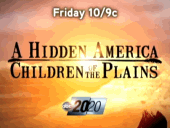By Chase Iron Eyes
Indigenous people experience the world differently than any other group of people. Indigenous people often wonder if Western mainstream society is a cruel joke. Everywhere we turn we see the symptoms of misinformation: feeding the oil economy while wasting or destroying water, Indian mascots, Hollywood-driven stereotypes, exploitation of sacred ceremonies, Indian Halloween costumes, made in China Indian art trinkets, machine mass produced beadwork and quilts, and countless other day-to-day in your face realizations of our indigenous condition that we endure, with pride. We live these stories. Our stories are inherently colored by our perceptions.
In order to appreciate the role of the non-Native in indigenous media one must realize that media in general, as we know it, consists of 500+ years of institutional paradigms that most always include depicting the Indian as noble, primitive, savage, bloodthirsty, lusty, and/or fierce. More importantly, mainstream is convinced by centuries of brainwashing that Indians, having not figured out how to exploit the earth properly, were and continue to be impediments to “progress”; of course as that term is used in “modern” financial-industrial civilization. In short, Indigenous people are objectified. These collective paradigms see us as relics, as interesting little bits of history–that go well with White heroes as the protagonist in our stories.
One recent and widespread example of non-Natives dominating the story line is that of Diane Sawyer’s Children of the Plains piece on the Pine Ridge reservation. The show has received mixed reviews among Native people: a critical response from Rob Schmidt and two positive video responses from the Sicangu Lakota kids of the Rosebud Rez are highlights. Yet a great many of my friends on the new moccasin telegraph (Facebook, Twitter, etc.) discussed the merits of the show as well. Generally, I appreciate any mainstream coverage of the Indigenous experience. However, in this hour long broadcast I got nothing but highlights of the negative stereotypes that evoke sympathy. No doubt, the show had me in tears in witnessing the arresting poverty cycle and its toll on children. I think some of these shows are designed to play on a paternalistic, benevolent sentiment among the mainstream. “Oh look at the poor Indians, if they could only pull themselves out of poverty, or quit drinking, how do we send them our old clothes…”
What does that tell you about indigenous people experiencing the world differently? It tells me that it isn't something in the blood. Rather, it's something anyone can learn with an open mind, lots of research, and cultural sensitivity.
In fact, I saw several non-Natives criticize the special. And several Natives defend it. I suspect one's mental attitude (e.g., liberal, critical) outweighs one's ethnic upbringing in cases like this.
Back to the question
Anyway, I agree that Natives should tell their own stories. But I obviously think there's a role for non-Natives like me, too.
I've been doing what I do for about 20 years now. Of course, I spent 10 of those years engaged in heavy research: books, newspapers, movies, documentaries, visits, and interviews. And I still have only a general knowledge of Indian country.
If you're not in the same ballpark as Tony Hillerman or me--assuming I'm in his ballpark--you probably have no business writing Native-themed movies, TV shows, novels, or comic books.
For more on Children of the Plains, see Praise for Poverty Porn Column and Trimble Defends Children of the Plains.


No comments:
Post a Comment